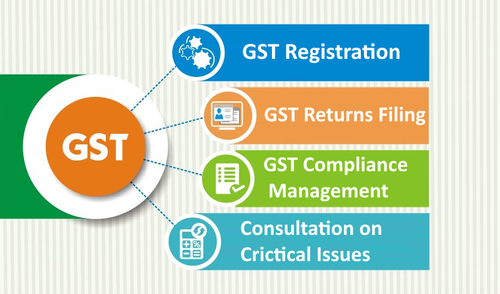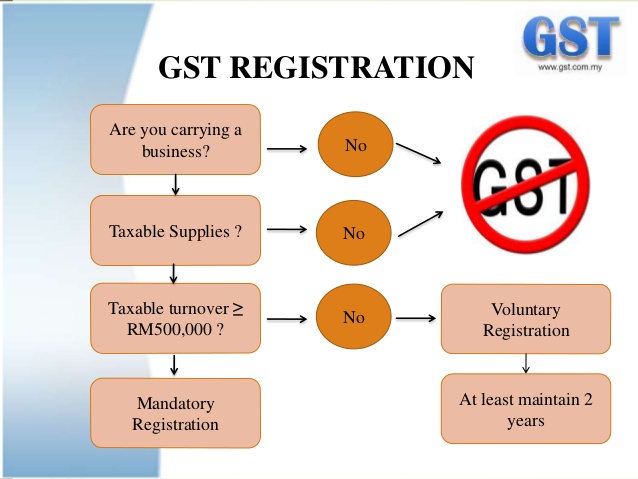Singapore GST Registration: What You Need to Know Prior To Using
Singapore GST Registration: What You Need to Know Prior To Using
Blog Article
The Ultimate Guide to Streamlining the GST Registration Refine and Needs for Small Company Owners

Recognizing GST Fundamentals
To realize the fundamentals of the Item and Provider Tax (GST) system, local business proprietors need to first recognize its underlying implications and principles. GST is a value-added tax imposed on a lot of goods and solutions for residential consumption. It aims to enhance the tax procedure by changing numerous indirect tax obligations enforced by the state and central federal governments. Under the GST regimen, organizations are required to sign up and accumulate tax on behalf of the government, making sure openness and conformity.
One of the key concepts of GST is input tax obligation credit history, which enables businesses to claim credit rating for taxes paid on their acquisitions. This device avoids the cascading impact of taxes and promotes efficiency in the tax obligation system. Furthermore, GST is a destination-based tax obligation, indicating that the tax obligation is imposed at the factor of usage as opposed to the factor of beginning. This guarantees fair circulation of tax profits among states based on where the products or solutions are eaten. Understanding these standard principles is critical for small company owners to navigate the complexities of the GST system and guarantee compliance with the law.
Eligibility Standards for Enrollment
Having actually developed a foundational understanding of GST principles, local business proprietors must currently fulfill certain eligibility requirements to proceed with the enrollment process. In India, entities engaged in the supply of products or solutions with a yearly aggregate turn over going beyond Rs. 40 lakhs (Rs. 10 lakhs for unique category states) are required to register for GST. In addition, specific businesses such as those associated with inter-state look these up supply of goods, laid-back taxable persons, and those required to pay tax under the reverse fee system must register for GST irrespective of their turnover. Furthermore, organizations that were signed up under the previous tax regimen (VAT, service tax obligation, and so on) are also mandated to sign up under GST. Nevertheless, farming services that only provide produce out of primary manufacturing are exempt from GST registration. It is critical for company owners to carefully examine their qualification based on these standards to guarantee compliance with the law and stay clear of any type of penalties for non-compliance.
Files Required for GST Registration

Simplified Registration Process Actions
Complying with the collection and verification of the requisite files, the enrollment procedure for GST can be navigated via a collection Click Here of simplified actions designed to help with effective conformity for small business proprietors. Upon effective confirmation, an Application Recommendation Number (ARN) is released, suggesting the conclusion of the GST registration procedure. By adhering to these streamlined steps, little service owners can successfully register for GST and make sure conformity with tax obligation guidelines.
Tips for Ensuring Conformity
To keep regulatory adherence and functional integrity, diligent oversight and aggressive steps are crucial in guaranteeing conformity with GST requirements for tiny company owners. Little organization owners should remain updated with GST policies, filing target dates, and any adjustments in tax obligation rates to prevent charges and preserve an excellent standing with tax authorities. Attending GST awareness workshops or training programs can improve understanding and compliance with GST guidelines, eventually benefiting the service in the lengthy run.
Final Thought
In verdict, small company owners have to comprehend the fundamentals of GST, satisfy the eligibility criteria, collect needed records, and comply with the simplified enrollment process steps to make certain compliance. By simplifying the GST registration process and needs, tiny business owners can avoid fines and operate their companies efficiently within the legal structure - Singapore GST Registration. It is crucial for small company owners to remain informed and compliant with GST laws to maintain a successful organization operation
Tiny company owners seeking GST enrollment should guarantee they gather and submit the essential papers to finish the registration process efficiently. The documents needed for GST registration usually include evidence of service registration or unification, PAN (Long-term Account Number) card of the company address, identity and entity proof of the promoters/partners/directors, photos, address proof of the location of service, bank account declarations or terminated cheques, and consent forms. Attending GST recognition workshops or training programs can improve understanding and conformity with GST policies, inevitably benefiting the company in the lengthy run.
By streamlining the GST enrollment procedure and demands, tiny service owners can avoid fines and run their organizations smoothly within the legal framework. It is vital for small company proprietors to stay certified and informed with GST Click This Link regulations to maintain an effective company procedure.
Report this page